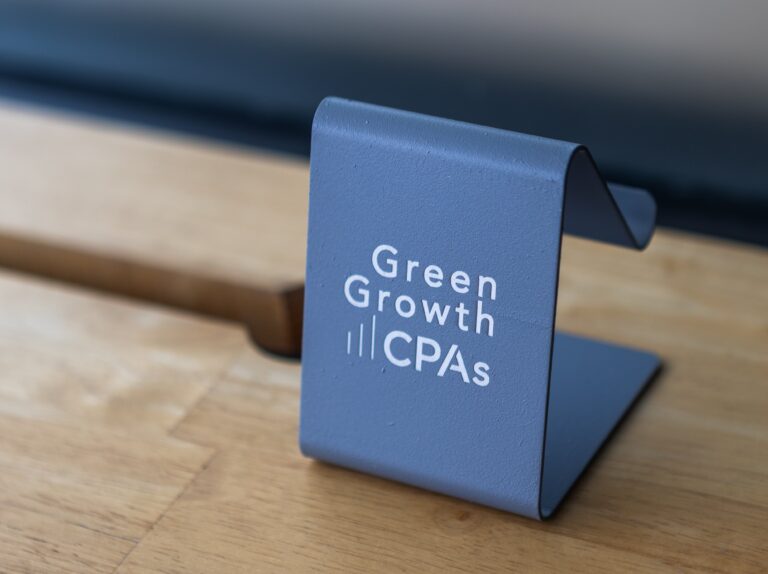The evolution of the cannabis industry has been nothing short of dramatic, with legalizations and burgeoning markets opening up opportunities for savvy entrepreneurs. Amidst this rapid growth, financial management has emerged as a critical aspect of sustainable success. Central to this is a Chief Financial Officer (CFO) role. In this article, we delve into the nuances of hiring a CFO for your cannabis business, their unique challenges, and why outsourcing CFO services could be the game-changer you need.
Why a Cannabis CFO?
The cannabis industry presents a unique landscape with its own set of financial challenges. As such, businesses within this sector must have a CFO who fully comprehends the cannabis market’s intricacies. A cannabis CFO is not just a financial manager; they are a strategic partner equipped to navigate the industry’s legal complexities, manage cash flow, ensure financial compliance, and drive profitability.
Financial Management in the Cannabis Industry
A CFO in a cannabis company carries the responsibility of overseeing executive accounting functions. They are tasked with ensuring the business’s financial health by meticulously analyzing profit and loss statements, balance sheets, and cash flow. But beyond these basic tasks, a cannabis CFO must also create and maintain robust internal controls for state regulation compliance and investor expectations.
The CFO, as a Strategist
In a cannabis company, a CFO also plays a critical strategic role. They are the point person for all financial reporting, including reports to internal management and external parties like investors and lenders. They help develop key performance indicators (KPIs), lead capital-raising efforts, and oversee tax preparation with a keen understanding of the unique tax considerations in the cannabis industry, such as the 280E and COGS deductions.
The CFO as a Risk Mitigator
One of the unique challenges the cannabis industry faces is the risk of audits, primarily due to stringent IRS regulations and Section 280E. A proficient cannabis CFO establishes proper internal controls and implements the right systems to facilitate audit processes, ensuring the business stays compliant and prepared for potential audits.
Hiring a Cannabis CFO: Key Considerations
When hiring a CFO for your cannabis business, several factors should be considered. A competent cannabis CFO should have rigorous financial credentials, a deep understanding of the cannabis industry, and the ability to navigate its unique challenges.
Experience and Expertise
The potential CFO’s educational background and work history should demonstrate a robust understanding of finance and business operations. Look for a candidate with at least three years of experience in a similar role, ideally within the cannabis industry, to ensure your CFO isn’t learning on the job.
Industry Knowledge
A deep understanding of the cannabis industry is essential for a CFO in this role. They should be familiar with the industry’s unique financial challenges, including the complexities of cannabis tax law and the nuances of raising capital and setting up bank accounts in an industry where traditional sources of capital may be limited.
Problem-Solving Skills
The potential CFO should be able to discuss their previous work and demonstrate their problem-solving skills confidently. Present them with a situation your cannabis company is currently facing and gauge their insight into the matter.
Outsourcing CFO Services: A Viable Alternative
While hiring an in-house CFO is an option, outsourcing CFO services is a viable alternative, offering equal, if not more, benefits, especially for emerging businesses in the cannabis industry. Outsourced or fractional CFO services can provide expert financial management without the full-time commitment, making it an attractive option for businesses of all sizes.
The Perks of Outsourcing
Outsourced CFO services present several advantages:
- Cost Efficiency: Outsourcing can save significant costs associated with hiring a full-time CFO, including salary, benefits, and onboarding expenses.
- Flexibility: Outsourced CFO services can be scaled to meet your business’s needs, providing financial expertise when you need it without a long-term commitment.
- Access to Expertise: Outsourced CFO services often come from teams of experienced financial professionals, giving you access to a wealth of knowledge and expertise that may not be available with a single hire.
- Risk Mitigation: Outsourcing CFO services can help manage risks associated with turnover or absence, ensuring business continuity by providing access to a team of financial experts rather than relying on a single individual.
Selecting an Outsourced CFO Service
When choosing an outsourced CFO service, it’s essential to consider the provider’s experience, breadth of services, and understanding of the cannabis industry. The provider should offer a comprehensive range of CFO-level insights, including identifying key metrics, interpreting financial results, cash management, strategic planning, and, potentially, helping with mergers and acquisitions.
Furthermore, the outsourced CFO service should be equipped to manage the unique financial challenges of the cannabis industry. This includes understanding cannabis tax law, managing cash in an industry where traditional banking services may be limited, and establishing systems and controls to maintain compliance with state regulations and investor expectations.
The Future of Cannabis Financial Management
The cannabis industry’s unique financial landscape necessitates expert financial management. A cannabis CFO, whether in-house or outsourced, is imperative to drive profitability, ensure compliance, and steer the business toward sustainable success.
An outsourced CFO service is an excellent option for cannabis businesses, offering expert financial management without the commitment of a full-time hire. As the industry continues to evolve, businesses that leverage the expertise of a skilled cannabis CFO, either in-house or outsourced, will be well-positioned to navigate the industry’s unique challenges and capitalize on its opportunities.
Final Thoughts
The speed at which the cannabis industry is evolving necessitates a strategic financial partner who can steer the business toward profitability while navigating the industry’s unique challenges. Whether you hire an in-house CFO or opt for an outsourced CFO service, the bottom line is that your cannabis business needs a CFO who understands the industry inside out.
Navigating the cannabis industry’s financial landscape can be complex, but with the right CFO, your business will be well-equipped to tackle these challenges head-on. Take the time to conduct your due diligence, consider your options, and make the choice that aligns best with your business’s unique needs and goals. If outsourcing your CFO is the right direction for your business GreenGrowth CPAs is here to help. Learn more about our outsourced CFO services or book a meeting today!





